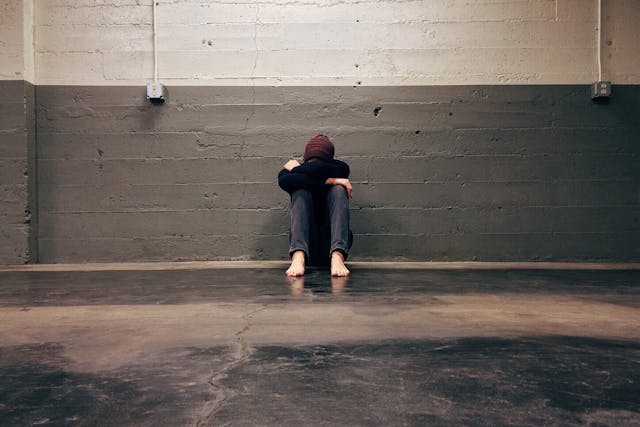Recovery from addiction is a challenging journey that often requires individuals to rebuild their lives from the ground up. For many, an important part of this process is addressing mental health issues, such as anxiety and depression, that may have contributed to substance use or have emerged during recovery. These mental health challenges can complicate recovery, making it essential to address both addiction and mental wellness simultaneously. Understanding how to manage anxiety and depression is critical to a balanced, sustainable recovery.
Why anxiety and depression are common in recovery
Anxiety and depression are two of the most common mental health problems that people face, regardless of their addiction history. However, those in recovery are often more vulnerable to these problems. Anxiety can stem from fear about the future, doubts about staying sober, or concerns about repairing relationships. Depression, on the other hand, can develop as a result of feelings of guilt, the loss of previous social networks, or the physiological changes that the brain undergoes after long-term substance use.
These mental health challenges may also be related to what is known as post-acute withdrawal syndrome (PAWS), a phenomenon in which individuals experience emotional and physical symptoms long after the initial withdrawal phase. Symptoms such as mood swings, fatigue and sleep disturbances can last for weeks or even months, increasing feelings of anxiety and depression.
The importance of integrated treatment for co-occurring disorders
When a person experiences both addiction and mental health problems, it is known as a co-occurring disorder. Integrated treatment, which addresses both addiction and mental health issues simultaneously, is critical for individuals facing these dual challenges. Without proper treatment for mental health issues, individuals are more likely to experience setbacks in their recovery.
Research shows that people who participate in both addiction recovery programs and therapy for mental illness have a greater chance of long-term recovery. Effective integrated treatment may include a combination of medication, cognitive behavioral therapy (CBT), and lifestyle changes, each tailored to the unique needs of the individual.
Practical strategies for managing anxiety and depression during recovery
Below are some practical strategies for dealing with anxiety and depression during the recovery process:
1. Build a support network
Having a strong support network is essential for recoveryespecially when it comes to mental health issues. Support can come from family, friends, recovery groups, or mental health professionals. For many, finding a community of people who understand their struggles makes a big difference. Support groups, such as Alcoholics Anonymous (AA) or Narcotics Anonymous (NA), can provide a safe space to share experiences, gain encouragement, and build accountability.
Additionally, mental health support groups, specific to anxiety or depression, can provide targeted guidance and camaraderie. Knowing that others are going through similar problems can help reduce feelings of isolation and loneliness, which often lead to both anxiety and depression.
2. Embrace therapy and counseling
Therapy can be transformative in addressing both addiction and mental health issues. Cognitive behavioral therapy (CBT) is one of the most effective methods of managing anxiety and depression. CBT helps individuals identify and change negative thought patterns, providing a constructive way to respond to stress or cravings.
Other types of therapy, such as dialectical behavior therapy (DBT) or acceptance and commitment therapy (ACT), may also be valuable. These therapies teach coping mechanisms for intense emotions and encourage mindfulness, which is beneficial for people dealing with depression or anxiety. Many people in recovery find that therapy not only helps with mental health issues, but also gives them tools to cope with everyday stress without resorting to substances.
3. Treat medication as a tool (with caution)
Medication can be an effective part of treatment for co-occurring disorders, especially if symptoms of anxiety or depression are severe. Antidepressants or anti-anxiety medications can help regulate mood and provide relief from intense emotional discomfort. However, it is essential to work closely with a healthcare provider as some medications can have addictive properties or have a negative effect on a person’s recovery.
For those in recovery, medication management should always be supervised by a professional who understands both addiction and mental health. This ensures that the benefits of medication outweigh the risks and that the individual is closely monitored for possible side effects or dependencies.
4. Focus on physical health and routine
Maintaining a healthy lifestyle is a powerful tool in managing anxiety and depression. Regular exercise has been shown to improve mood by releasing endorphins, which naturally increase emotions. Even moderate physical activity, such as walking or yoga, can make a noticeable difference in mental health.
In addition to exercise, a balanced diet supports mental well-being by providing the nutrients the brain needs to function optimally. Sleep is also vital; creating a consistent sleep routine can help reduce symptoms of depression and anxiety. Many people in recovery benefit from establishing a daily routine that includes time for self-care, rest, and activities that provide a sense of fulfillment.
5. Practice mindfulness and meditation
Mindfulness practices, including meditation, can be incredibly effective in managing anxiety and depression. Meditation helps people focus on the present moment, making it easier to break away from negative thoughts or desires. Mindfulness-based stress reduction (MBSR) or guided meditation apps can be a good starting point for those new to these practices.
Integrating mindfulness into daily life does not have to be complicated. Simple exercises such as deep breathing, mindful eating, or a few minutes of silent reflection can reduce stress and increase greater awareness of one’s thoughts and emotions.
Overcoming stigma and building self-compassion
An important part of managing mental health during recovery is addressing stigma. Many people are ashamed to seek help for anxiety or depression, especially in addition to addiction recovery. However, it is important to recognize that mental health problems are part of a complex, treatable medical condition and not a personal failing. Embracing self-compassion and allowing oneself to seek help without judgment can be liberating and essential to lasting recovery.
The journey of recovery
Recovery is more than just withholding substances; it is a journey to holistic wellness. Managing anxiety and depression is a fundamental part of this process. Individuals in recovery can find balance and resilience by building a strong support network, pursuing therapy, considering medication when necessary, focusing on physical health, and practicing mindfulness. Every step toward managing mental health is a step toward living a fuller, healthier life—one where recovery is not only maintained, but truly enjoyed.





